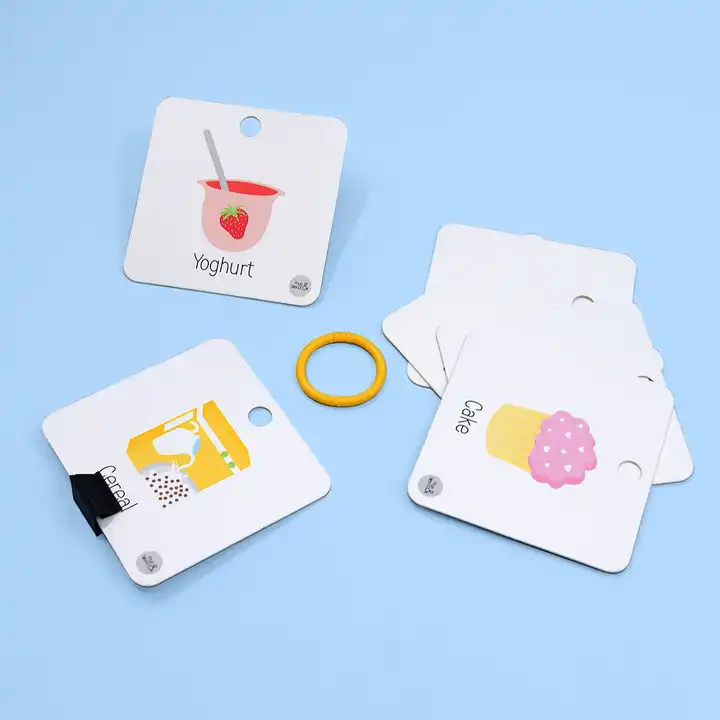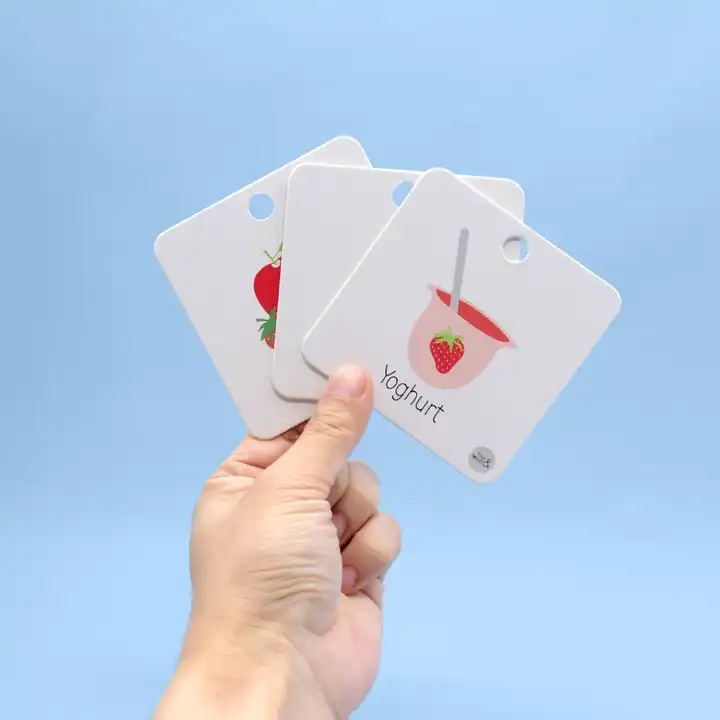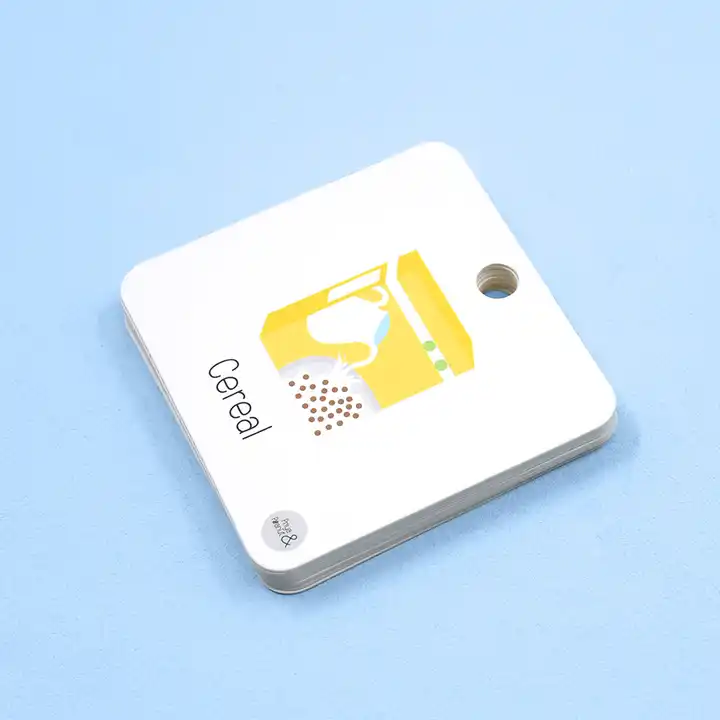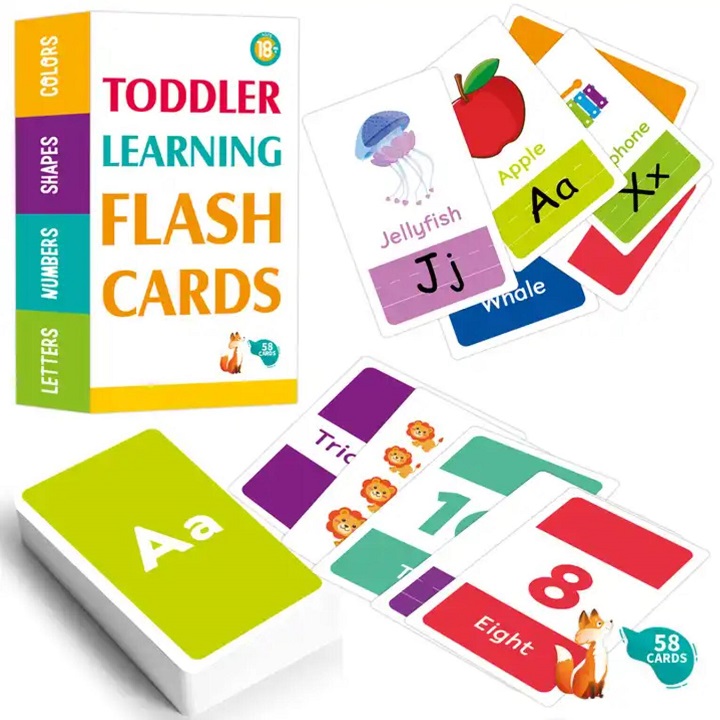Content Menu
● Understanding the Purpose of Flashcards
● Gathering Your Materials
● Identifying Key Information
● Creating Your Flashcards
● Organizing Your Flashcards
● Reviewing Your Flashcards
● Using Flashcard Apps and Software
● Adapting Flashcards for Different Subjects
● Common Mistakes to Avoid
● Conclusion
● Relevant Questions & Answers
>> 1. What is the Leitner System, and how can it improve flashcard studying?
>> 2. How can I make flashcards more engaging for subjects I find boring?
>> 3. Is it better to create my own flashcards or use pre-made ones?
>> 4. How often should I review my flashcards for optimal retention?
>> 5. Can flashcards be effective for complex problem-solving subjects like math or physics?
● Citations:
Flashcards are a classic and versatile study tool used by students of all ages and across various subjects. Their effectiveness lies in their ability to promote active recall, spaced repetition, and self-testing. However, simply creating flashcards isn't enough; they must be well-designed and used strategically to maximize their benefits. This article delves into the step-by-step process of preparing flashcards, incorporating best practices and addressing common questions to ensure you get the most out of this valuable learning tool.

Understanding the Purpose of Flashcards
Before diving into the creation process, it's crucial to understand the core principles behind flashcards and how they aid learning.
- Active Recall: Flashcards prompt you to actively retrieve information from memory rather than passively rereading notes. This active recall strengthens the neural pathways associated with the information, making it easier to remember[3][5].
- Spaced Repetition: Flashcards facilitate spaced repetition, a technique where you review information at increasing intervals. This method helps move information from short-term to long-term memory, improving retention over time[3].
- Self-Testing: Flashcards provide a quick and easy way to test your knowledge. By quizzing yourself, you can identify areas where you need more practice and focus your studying accordingly[3].
Gathering Your Materials
To begin making flashcards, you'll need the following materials:
- Index Cards: Choose a size that suits your needs. Smaller cards (3x5 inches) are ideal for concise information, while larger cards (4x6 inches) offer more space for detailed explanations or diagrams.
- Pens or Markers: Use different colors to highlight key information and make your flashcards visually appealing[5].
- Textbook, Notes, or Study Guide: These resources will provide the content for your flashcards[1].
- Optional: Software or Apps: Consider using flashcard software or apps like Quizlet[4][6], Revisely[2], or Anki for digital flashcards with added features like spaced repetition algorithms and multimedia support.
Identifying Key Information
The first step in creating effective flashcards is to identify the most important information from your study materials[1]. This involves distinguishing key concepts, definitions, formulas, dates, and other essential facts that you need to memorize.
- Read and Highlight: Begin by reading through your textbook, notes, or study guide. Highlight or underline key terms, definitions, and concepts[1].
- Focus on Core Concepts: Prioritize information that forms the foundation of your understanding. These are the concepts you need to grasp before you can move on to more complex topics[9].
- Look for Definitions and Keywords: Pay close attention to definitions of key terms and keywords that encapsulate important concepts[1].
- Identify Formulas and Equations: For subjects like math and science, identify important formulas and equations that you need to memorize[1].
- Note Dates and Events: For history and social sciences, note important dates, events, and figures[3].
Creating Your Flashcards
Once you've identified the key information, it's time to start creating your flashcards. Follow these steps to ensure your flashcards are effective and easy to use:
- Write a Question or Term on One Side: On one side of the flashcard, write a question, term, or concept that you want to learn[1]. This should be concise and clear, prompting you to recall the answer or definition.
- Write the Answer or Definition on the Other Side: On the other side of the flashcard, write the answer, definition, or explanation of the term or concept[1]. Be thorough but concise, providing enough information to jog your memory without overwhelming you.
- Use Your Own Words: Rephrasing information in your own words helps you understand and remember it better[3][5]. Avoid simply copying verbatim from your textbook or notes.
- Keep it Concise: Flashcards should be focused on a single concept or idea[3][5]. Avoid overloading them with too much information, as this can make them difficult to use and less effective.
- Use Visuals: Incorporate diagrams, charts, images, or other visuals to help you remember the information[3][5][7]. Visual aids can be particularly helpful for visual learners and can make your flashcards more engaging.
- Color-Code Your Flashcards: Use different colors to categorize your flashcards by subject, topic, or difficulty level[5]. This can help you stay organized and quickly find the flashcards you need.
- Make it Fun: Add personal touches to your flashcards to make them more enjoyable to use[1]. This could include using colorful pens, drawing doodles, or adding mnemonics to help you remember the information[5][7].

Organizing Your Flashcards
After creating your flashcards, it's important to organize them in a way that makes them easy to use and review.
- Categorize by Subject or Topic: Group your flashcards by subject or topic to make it easier to find the ones you need for a particular study session.
- Use Dividers or Labels: Use dividers or labels to separate your flashcards into different categories.
- Store in a Flashcard Box or Binder: Keep your flashcards in a flashcard box or binder to protect them and keep them organized.
Reviewing Your Flashcards
The key to success with flashcards is to review them regularly and strategically.
- Spaced Repetition: Use spaced repetition to review your flashcards at increasing intervals[3]. This could involve reviewing them daily, then every few days, then weekly, and so on.
- Active Recall: When reviewing your flashcards, focus on actively recalling the information rather than passively rereading it[3].
- Shuffle Your Flashcards: Shuffle your flashcards before each review session to prevent you from memorizing the order of the cards.
- Test Yourself: Use your flashcards to test yourself regularly[2]. This will help you identify areas where you need more practice and track your progress over time.
- Focus on Difficult Cards: Pay extra attention to the flashcards you find difficult[5]. Review these cards more frequently and try different strategies to help you remember the information.
Using Flashcard Apps and Software
In addition to traditional paper flashcards, there are many flashcard apps and software programs available that can enhance your studying experience[2][4][6]. These tools offer features like:
- Spaced Repetition Algorithms: Automatically schedule reviews based on your performance, optimizing your learning and retention[2].
- Multimedia Support: Add images, audio, and video to your flashcards to make them more engaging and memorable[2].
- Collaboration Tools: Share your flashcards with classmates and study together[4][6].
- Mobile Access: Study your flashcards anywhere, anytime, on your smartphone or tablet[4].
Popular flashcard apps and software include:
- Quizlet: A widely used platform with a vast library of user-created flashcards and various study modes[4][6].
- Anki: A powerful and customizable flashcard program with advanced spaced repetition algorithms[2].
- Revisely: An AI-powered flashcard generator that automatically creates flashcards from your notes and study materials[2].
Adapting Flashcards for Different Subjects
Flashcards can be adapted for use in a variety of subjects. Here are some tips for using flashcards in specific disciplines:
- Mathematics: Use flashcards to memorize formulas, equations, and mathematical concepts. Include examples and practice problems on the back of the cards.
- Science: Use flashcards to learn scientific terms, definitions, and processes. Include diagrams and illustrations to help you visualize the concepts.
- History: Use flashcards to memorize dates, events, and historical figures. Create timelines and use mnemonics to help you remember the information.
- Language Learning: Use flashcards to learn vocabulary, grammar rules, and verb conjugations. Include images and audio to help you associate words with their meanings.
- Social Sciences: Use flashcards to memorize key concepts, theories, and historical events. Focus on understanding the relationships between different concepts and events.
Common Mistakes to Avoid
To maximize the effectiveness of your flashcards, avoid these common mistakes:
- Creating Too Many Flashcards: Focus on the most important information and avoid creating flashcards for every single detail[5].
- Overloading Flashcards with Information: Keep your flashcards concise and focused on a single concept[5].
- Using Vague or Ambiguous Questions: Make sure your questions are clear and specific, prompting you to recall a precise answer.
- Not Reviewing Flashcards Regularly: Consistent review is essential for moving information from short-term to long-term memory.
- Relying Solely on Flashcards: Flashcards are a valuable tool, but they should be used in conjunction with other study methods like reading, note-taking, and practice problems.
Conclusion
Creating and using flashcards effectively can significantly enhance your learning and retention. By following the steps outlined in this article, you can create a powerful study tool that helps you master any subject. Remember to focus on active recall, spaced repetition, and regular review to maximize the benefits of flashcards. Whether you opt for traditional paper flashcards or digital tools, the key is to create a system that works for you and stick with it.

Relevant Questions & Answers
1. What is the Leitner System, and how can it improve flashcard studying?
- The Leitner System is a spaced repetition technique where flashcards are organized into boxes based on how well you know the material. Cards you know well are moved to boxes with longer review intervals, while cards you struggle with are reviewed more frequently[1]. This method optimizes study time by focusing on the most challenging material.
2. How can I make flashcards more engaging for subjects I find boring?
- To make flashcards more engaging, incorporate visuals, use colorful pens, and add personal touches like mnemonics or jokes. Relate the material to real-life examples or create stories around the concepts to make them more memorable[1].
3. Is it better to create my own flashcards or use pre-made ones?
- Creating your own flashcards is generally more effective because the act of summarizing and rephrasing information helps solidify understanding[9]. However, pre-made flashcards can be a good starting point, especially for broad topics, but personalize them to suit your learning style.
4. How often should I review my flashcards for optimal retention?
- Review your flashcards daily initially, then gradually increase the review intervals as you become more familiar with the material. Use spaced repetition techniques to optimize review times, focusing on cards you struggle with more frequently[3].
5. Can flashcards be effective for complex problem-solving subjects like math or physics?
- Yes, flashcards can be effective for complex subjects by focusing on key formulas, concepts, and problem-solving steps. Include example problems on the back of the cards to practice applying the concepts[1].
Citations:
[1] https://flashcardsandstationery.com/how-to-make-flashcards-step-by-step/
[2] https://www.revisely.com/flashcard-generator
[3] https://www.reddit.com/r/GetStudying/comments/1ea52j7/how_can_i_make_flashcards/
[4] https://quizlet.com/tw/features/flashcards
[5] https://mblexguide.com/make-better-flashcards/
[6] https://quizlet.com/features/flashcards
[7] https://www.youtube.com/watch?v=xrgyr7GXz60
[8] https://quizlet.com/cn/features/flashcards
[9] https://www.youtube.com/watch?v=47yVbdReyXw
































